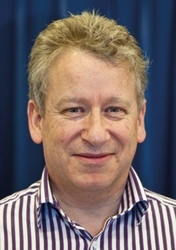Microbiology Society & Professor Neil Gow
Issue: Zoonotic diseases
05 November 2015 article

We are now the Microbiology Society
At this point you’ve no doubt seen that the Society has made a major change: we are now the Microbiology Society. The change was made at our AGM, when 89% of votes cast were in favour of renaming the Society.
Why has this change been made?
70 years ago, when the Society was founded, the word ‘General’ was used to describe a learned society that encompassed all disciplines of microbiology. Over time, people’s perceptions of the word have changed and to some ‘General’ implied a lack of focus. Also, while we will always remain a membership organisation that champions microbiology and microbiologists, we need to ensure that the public, policy-makers, school pupils, teachers and others can engage with the crucial importance of our subject. To these groups, our former name was slightly opaque.
Other than the name, will anything else about the Society be changing?
Renaming the Society is not about changing our core identity; it is about preserving it and helping us to do our job even more effectively in the future. We will continue to host world- class conferences, publish journals of international repute and engage with policy-makers, educators, journalists and the public. The Society will continue to advance its vision of “A world in which the science of microbiology provides maximum benefit to society”.
Have the Society’s contact details changed?
Our homepage is now:
www.microbiologysociety.org
with our journals now found at:
www.microbiologyresearch.org
and staff emails are now in the form:
[email protected], but our phone numbers remain the same.
Our Twitter handle has been changed to @MicrobioSoc
Will this affect my membership or grant application?
Your membership will be unaffected by the name change, and we will continue to offer grants to microbiologists at all stages of their careers. You can find out more information by visiting the grants pages.
Will this affect my journal subscription or manuscript submission?
The peer review and publication of your papers will be unaffected, and any open access fees will be automatically updated by Rightslink. The indexing of your paper in Pubmed, or similar, will also be unaffected. To email the Editorial Office, please contact [email protected]

Professor Neil Gow to be new Society President
The Microbiology Society is delighted to announce that our new President will be Professor Neil Gow from the University of Aberdeen. Professor Gow’s presidency will run for three years, beginning on 1 January 2016, when our current President, Professor Nigel Brown, steps down.
Neil has a strong affiliation with the Society, having joined as a PhD student in 1980. He has been a Senior Editor of the Society’s journal Microbiology, a member of Council, and Chair of the Eukaryotic Division.
He said of his appointment: “I am delighted and honoured to be elected President of a society that I have had a lifelong relationship with. I’m looking forward to working with old friends and new colleagues to continue to ensure that the vital science of microbiology is supported, stimulated and has a strong voice in science and medicine.”
Neil is a Wellcome Trust Senior Investigator and Director of a Wellcome Trust Strategic Award in Medical Mycology and Fungal Immunology. His research group is mainly focused on fungal cell wall biosynthesis and the pathogenic species of the Candida genus. He gained his undergraduate degree in Microbiology from the University of Edinburgh before undertaking a PhD at the University of Aberdeen. Previously, Neil has been President of the British Mycological Society and the International Society for Human and Animal Mycology.
Dr Peter Cotgreave, Chief Executive of the Microbiology Society, added: “I am delighted that the strong leadership shown by Nigel Brown will be followed by someone of the standing and calibre of Neil Gow. He is not just an outstanding scientist, but someone who understands how to bring people together to achieve more than they could on their own. I have absolutely no doubt that his presidency will be good for microbiologists, good for microbiology, and good for the application of microbial science to everyday challenges in society.”
Image: Professor Neil Gow. Frank Odds, University of Aberdeen..
